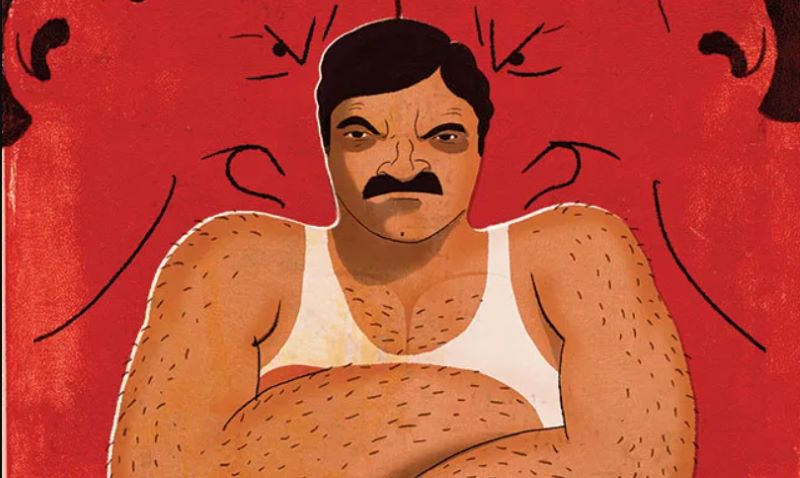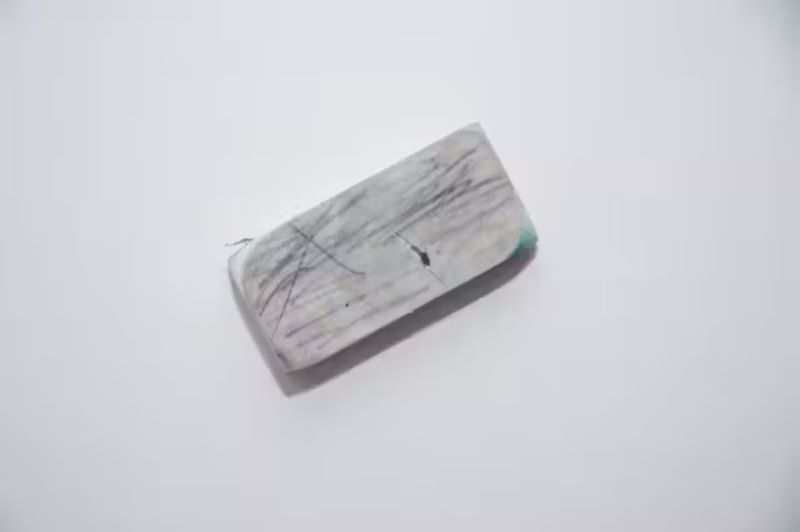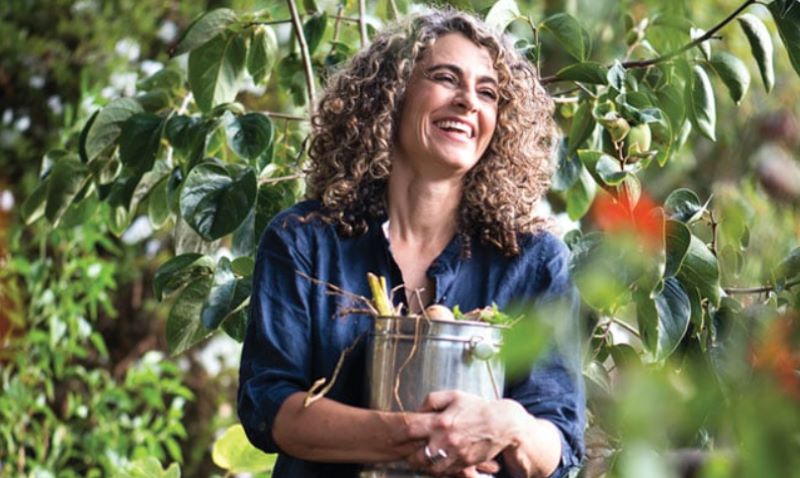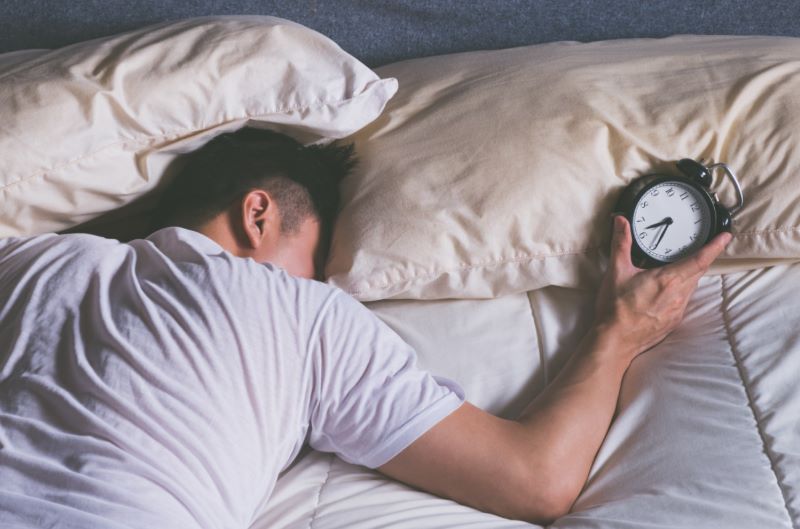
Five activists share how shifting their relationships with their own bodies helped them build community.

By Dr. Nicole Froio
Freelance Researcher, Writer and Reporter
The concept of cuerpo-territorio (“body-territory”) around which the Xinka women in Guatemala organize themselves recognizes the interconnectedness between human bodies and all other living beings.
Within this Indigenous philosophy, the body is understood as disputed political territory that is part of the land that has been colonized, exploited, and destroyed by a capitalist, patriarchal system. Both individual and collective subjugation are important pieces of this concept: The colonization of land is interconnected to the hierarchies placed on our bodies to maintain capitalism.
Our intersections—from gender and racialization to (dis)ability and sexual orientation—are what define our place in the hierarchy of capitalism. These predefined roles become even stricter in times of crisis. Take the COVID-19 pandemic—not only did it disconnect us from our communities and reveal the fragility of our bodies, but it also continues to disproportionately impact the most vulnerable among us. But what happens when we step into our autonomy and shed the trappings of heteropatriarchal capitalism? What is the ripple effect of that autonomy in the communities we’re a part of?
These are deeply personal and potentially transformative questions, which is why it’s helpful to learn from the lived experiences of activists who have shifted their relationships with their own bodies and discovered how embracing their autonomy helped them build community. Divorcing ourselves from harmful systems can usher in a collective, revolutionary vision that allows us to live as our most authentic selves without judgment, in community with others who are also free. It’s only by owning the desires of our bodies outside the constraints of capitalism that we can begin building the world we desire.
As I write this, my country, Brazil, is choosing a new president. I move my body to the voting booth and cast my vote for the Workers’ Party candidate, Luiz Inácio “Lula” da Silva, as adrenaline runs through my bloodstream. Thanks to extreme-right-wing President Jair Bolsonaro’s neglectful management of the pandemic, Brazil has lost more than 650,000 people. I’m grateful for my body and how alive it is. But at the same time, my body feels fragile because it’s so intrinsically connected to a society that prioritizes capital production above well-being.
After the left wins the first round of the elections, my wife and I go to Pedra do Sal, the birthplace of samba. Enslaved Afro Brazilians created samba to resist repression and embrace joy. We move our bodies to the music being played by five women, who are singing a revolutionary song about Marielle Franco, a Black bisexual socialist councilor assassinated in 2018. We stretch our bodies in resistance with other bodies—bodies that are queer, Black, femme, and everything in between—and in that moment, we can almost feel the coming of a better world.

Lyz Lenz had been taught, like most cisgender women, that she was destined to be a wife and a mother, but the exhaustion of balancing domestic work and her career goals finally came to a breaking point after 12 years of marriage. “I was talking to all my friends, and I was just like, how did we get here?” she says. “How did we decide that we were going to be equal, and yet here we are, married. We gave up our maiden names, we are doing all the labor, all the housework, in addition to trying to have careers. And it was this moment of like, ‘I can’t do this.’”
When her couples counselor suggested Lenz stop writing her first book to save her marriage, she immediately knew what she had to do. “I said, ‘Fine, I quit my marriage.’” Lenz felt all the usual feelings that accompany divorce: sadness, embarrassment, a sense of failure. But other things bloomed too: relief, time to herself, self-discovery, and most importantly, freedom to live her life. “Those first couple of weeks when I had moved out, I was renting this house. I had no money,” Lenz recalls. “And I remember being like, ‘Why is this house so clean all the time?’ I was told that being a single mother would be hard, and immediately I was like, ‘This is so much fucking easier.’”
Since that realization, Lenz has been writing about the power of being a single mother who chooses to remain unpartnered. In her Substack newsletter, appropriately titled Men Yell at Me, she has written extensively about “finding power outside of the nuclear family.” In a viral 2018 essay for Glamour, Lenz vowed to never again cook for a man. “I stopped cooking because I wanted to feel as unencumbered as a man walking through the door of his home with the expectation that something had been done for him,” Lenz wrote. “I wanted to be free of cutting coupons and rolling dough and worrying about dinner times and feeding. I wanted to rest.”
Lenz found that shedding the expectations society had of her body—cooking, cleaning, being a wife, while simultaneously succeeding at her career—was liberating, and it opened up a new world of options for her. Escaping the heteropatriarchal family allows for a world where women are encouraged to have functions other than wife and mother, and foster different kinds of partnerships—platonic, lesbian, nonmonogamous—to nurture their lives.
After liberating herself from those expectations, Lenz realized she desired a community different from the conservative one she grew up in. Writing has provided it to her. The experience of stepping into her own autonomy and inspiring others to do the same has taught her about the inherent interconnectedness of human beings—and how essential this awareness is for community building. “It’s about learning how to be connected as human beings,” Lenz said. “Our power is not our individuality. Our community is truly our power. How do I intentionally build community that is fulfilling and sustaining and outside of heteronormative bounds?”

Puma Camillê first felt society’s constraints when she was 6 years old. While dancing one day, Camillê moved in a way considered “too feminine” for the body she inhabited. Members of her family chastised her for transgressing an invisible line that Camillê never knew existed. From that moment on, she avoided certain gestures, trying to perform the gender she was assigned at birth.
“My body became stuck. It started giving in to the stereotypes of Blackness imposed by society,” she says. “My body started learning the performativity of [Black] masculinity.” At 14, when Camillê began practicing capoeira—a mixture of martial arts, dancing, and acrobatics that enslaved Afro Brazilians invented to defend themselves from their enslavers—she began reconnecting with movement. Despite capoeira’s battle roots, the sport is also a kind of dance, one that allowed Camillê to move gracefully and expansively in a space that’s demographically dominated by cisgender men.
At 18, she came out as a gay man and became homeless. As a result, she began having sex with men for money. Walking the streets of Campinas, Brazil, she met trans women and travestis (a trans femme identity specific to Latin America) who depended on sex work to survive. Capoeira became a practice of strength for Camillê, much like it was for her ancestors; not only did she practice the sport to reconnect with her body, she also used it as a tool for defense when things turned violent with her clients.
Then, in 2019, Camillê attended a ballroom event in Campinas. Watching people vogue made her heart flutter and reminded her that the movements were already inside her; she just needed to listen to how her body wanted to move, abandoning the masculine performance that was forced upon her. From that moment, Camillê became a pioneer of mixing vogue and capoeira, creating a new form that includes flips and acrobatics with whips. Today, Camillê’s unique dance methodology is world-famous, and she has accrued more than 43,000 followers on Instagram. The dance she invented allowed her to better understand her gender identity. “Ballroom helped me understand myself as a femme queen, as a trans person, as a travesti,” Camillê explains. “It helped me search for my own expression, for my marginalized, feminine body.”
Camillê knows that not all communities are welcoming of a body like hers—after all, her own family tried to suppress her real essence. In the U.S., it’s estimated that 40% of the homeless youth population is LGBTQ, a direct result of families rejecting their queer children. The ballroom community, however, helped her listen to her body. “More and more, I see my body as political communication,” Camillê explains, emphasizing that she uses dance to challenge how people see her body—masculine, oppressed, nonexistent—and articulate how she wants her body to be seen—feminine, exquisite, solid, and real. “I tell my story and encourage people to listen to their bodies.”
In 2022, Camillê founded Capoeira Para Todes (Capoeira for Everyone), a nonprofit collective that’s inclusive of all bodies and genders. Camillê doesn’t want kids to ever feel like she did, so she’s advocating for more inclusion in her field. “I want to pierce the bubbles of masculinity and femininity that are imposed onto us,” Camillê says. “Many people are attached to those rules, and when I show that I exist and share dance with them, they’re more likely to liberate themselves.”

Philadelphia-based multidisciplinary artist, scholar, and ex-cam girl Zalika U. Ibaorimi challenges the very concept of the human body in her work. As a Black queer femme born in a Christian family, she has always tried to make sense of the ways her body has been hypersexualized and adultified since age 15. On Instagram, under the handle @n0humaninv0lved, Ibaorimi photographs her own body, dressed in Black femme aesthetics, as an exploration of the intersection of Blackness, desirability, and liberation.
“What even is Black bodily autonomy?” she wrote under a photo of her cleavage and lips. “[Bodily autonomy] is a principle and a promise of settler-colonialism. That is a principle and a promise within the confines of an anti-Black world. This world revolves around our negation.”
Ibaorimi’s Instagram handle is a reference to the unofficial term used by members of the Los Angeles Police Department and other public officials to describe the murders of people of color who were considered “nonhuman.” The term was often used to refer to sex workers killed by police. A doctoral candidate of African and African Diaspora Studies at the University of Texas at Austin, Ibaorimi is attempting to reclaim the term and think beyond the bounds of being human. “I’m not gonna wallow in the sadness of not being human,” she says. “If being human means being like my oppressors—oh baby, I don’t want it.”
By exploring the body beyond humanity, Ibaorimi hopes to find novel ways of liberation that aren’t compromised by anti-Blackness, tokenization, and misogynoir. If we invented another mode of existing, would it be easier to conceptualize a world beyond racial capitalism? Recently, Ibaorimi moved home due to a family emergency. She is now doing care work for a family member, which has resulted in a reckoning with her own limitations. “This body is committed to liberation for Black people and people who are oppressed by way of gender and sexuality, but I also think my body is trying to learn how to not overcommit to the things that we know we may not be able to carry as well.”
This shift in energies has revealed to Ibaorimi how important it is to model transparency about capacity in organizing spaces. “People may feel like they’re wearing themselves thin and down, and when they’re honest about where they are, it helps you as a person, as a community with them, to be honest about where you are too,” she said. An organizer for the Philly chapter of the Malcolm X Grassroots Movement, an organization focused on the liberation of Black people, and the Philadelphia Red Umbrella Alliance, a grassroots collective led by and for sex workers, she has found that being honest about how much she is able to do has encouraged others to do the same.
Being honest about capacity “teaches you to be graceful with one another,” Ibaorimi says. “Being in principled struggle with your community is not about being punitive and disciplined. I think part of it is making sure that we’re organizing within a framework of grace and understanding. It encourages folks to just be more genuine with one another.” Ibaorimi is right to safeguard her mental health: A 2015 study found that 71% of racial justice activists have felt depressed and isolated. A politic of care that recognizes the limitations of organizers is essential to preserving a body that can work for the collective.
From that understanding, Ibaorimi believes it’s possible to extrapolate the world we want to organize for: a world where care work isn’t expected based on gender or race, but given according to our limitations, needs, and affections. This approach is particularly important for Black women and femmes, who often take on the bulk of both unpaid and paid domestic work. Resting to get ready for the next struggle against white heteropatriarchal capitalism is a necessity.

Vilissa Thompson, a Black disability rights consultant, activist, and writer, had a different body than most of her friends when she was growing up in Winnsboro, South Carolina. That created an obstacle to accepting her body, so she attempted to fit in instead. “When it [came] to embracing my body, I was doing so in comparison with other folks,” Thompson says. “Now I really understand that this was due to ableism and how we view disabled bodies, how we engage with disabled people.” Thompson was only able to embrace her body when she gave up on being like everyone else.
Even after finding her vocation as a disability activist, Thompson didn’t feel like she fit in. Though she saw herself as a disabled person, she hardly saw Black women represented in the disability rights movement. So when she read an article on her Twitter timeline about beauty and disability that only included white disabled people, she created the hashtag #DisabilityTooWhite. “When you’re bombarded with stories about disabled bodies, they’re usually about white cis disabled women,” Thompson says. “You don’t see disabled bodies much in general, but when you do see them, they don’t look like you. And so it’s still about this connection, of connecting how your body is viewed versus those who are the majority.”
It was this exclusion that inspired her to create spaces for disabled people of color. As a Black woman who is under 4 feet tall and uses a wheelchair, Thompson found that connecting with other Black disabled women helped her navigate the invisibility she always experienced. “Finding a community of Black disabled women helped me understand we aren’t isolated, that we’re all figuring this thing out,” Thompson says. “When we find each other, we’re not so alone. I think it reduces loneliness and that invisibility.”
Founder and CEO of Ramp Your Voice!, an organization focused on promoting self-advocacy and strengthening empowerment among disabled people, Thompson is an expert in creating intentional community. “My work is about helping Black women, girls, and femmes to find a community sooner than most of us did,” she says. “I think it makes a major difference, finding that community, increasing [your] sense of self and empowerment about your autonomy, your body expression. Being able to do that earlier means so much.”
Thompson says that understanding you’re not alone in fighting the -isms and -phobias of society helps articulate solutions to everyday ableism. She highlights intergenerational relationships as a cornerstone of this work. “It’s critical to learn with older folks, not just on an activist, professional level, but also on a personal level, learn from the life lessons they have learned in relation to the disability and outside of that.”

For Sonya Renée Taylor, author, activist, and founder of The Body Is Not an Apology, radical self-love is essential to achieving collective liberation. Originally a renowned slam poet, Taylor began to delve into body-liberation work in 2010 during a conversation with her friend Natasha. Natasha, who has cerebral palsy, was hesitant to ask her sexual partner to use a condom. She thought she couldn’t demand something from her sexual partners and that she should feel lucky to be having sex in the first place. Taylor responded quickly: “Your body is not an apology. You do not use it to say ‘Sorry for my disability.’”
In July 2010, Taylor turned the phrase into a slam poem that reads, in part: “The body is not an apology. Let it not be common as oil, ash, or toilet. Let it not be small as gravel, stain, or teeth. Let it not be mountain when it is sand. Let it not be ocean when it is grass. Let it not be shaken, flattened, or razed in contrition.” In 2011, Taylor posted a photo of herself on Facebook with a caption about society’s insistence that she make her fat, Black body smaller. “For this one camera flash, I am unashamed, unapologetic,” she wrote. People began sharing their own photos, showing off their racialized, disabled, queer bodies without shame. That was the birth of The Body Is Not an Apology, a global digital media and education company that Taylor says has now reached tens of millions across 140 countries who seek to learn about identity, liberation, and social justice.
Taylor’s work focuses on what our bodies lose through capitalist white supremacist heteropatriarchal socialization and how we can get those things back. “I tell people all the time, you’ve never seen a self-loathing toddler,” she explains, emphasizing that society teaches us the wrong lessons about our bodies. “And so the question has always been, how do we get radical self-love that dismantles these bodily hierarchies? What has happened to us that has disconnected us? What is it that has shown up in our lives—individually, interpersonally, socially, economically, politically—that has created the fissure between us and our radical self-love?”
If we can peel back the layers of our socialization, we can reconnect with our radical self-love. In turn, that self-love will help us see what needs to change in our communities and societies. Taylor says that after years of trying to be a desirable body in the Black community in Pennsylvania, and then years of activism in which she saw her body in opposition to white supremacy, today she is trying to simply exist. “If we were all able to reconnect to and re-embody the knowledge of radical self-love, then we will recognize that that external system is a lie,” Taylor says. “And then we would divest from the system, we would decide that the [hierarchy this society operates on] is a lie, and a vicious, oppression-based entity. And what would it look like for us to collectively divest? When we collectively divest, then the world changes.”
Originally published by Yes! Magazine, 11.21.2022, under a Creative Commons Attribution-NonCommercial-NoDerivatives 4.0 International license.







